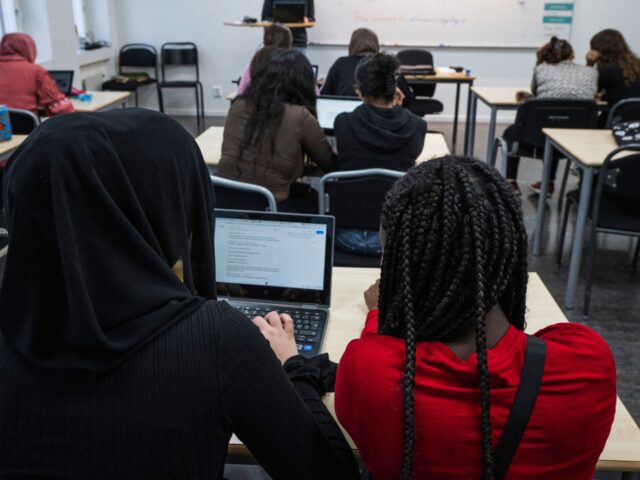Students in junior and senior high schools across Sweden are increasingly supporting right-wing parties according to the results of this year’s school elections, which saw the conservative Moderates and the populist Sweden Democrats account for 48 per cent of the overall vote.
The school elections, which allow students to vote in a mock national election, suggeststhat young people are shifting to the right and becoming increasingly conservative in their political views as the centre-right Moderates won the election with 27 per cent of the vote, followed by the populist-right Sweden Democrats (SD) with 21 per cent.
The left-wing Social Democrats, who came first in last weekend’s national election, trailed in a distant third with just 16 per cent of the vote among young people, the newspaper Aftonbladet reports.
The results of the voting, according to political scientist Marja Lemne of Södertörn University, were “surprising” and the academic noted that the Social Democrats have had a hard time in recent years trying to attract support from young people.
“There will be a young opposition to what has been. The last eight years of red-green rule are a very large part of their conscious life. But now they are looking for something new,” Lemne said, arguing that youthful rebellion may play a part in the voting results.
Despite Sweden being the home country of famed environmental activist and climate change alarmist Greta Thunberg, the Swedish Green Party performed poorly in the school election, getting just 4.69 per cent, barely above the barrier to enter the Swedish parliament and down from 10.2 per cent in the last school election in 2018.
The shift right among Swedish youth comes as the populist Sweden Democrats saw their most successful election campaign ever, placing second according to the preliminary results released after the national Sunday election that will determine the next Swedish government.
While the youth of Sweden are becoming increasingly supportive of right-wing parties, an area with a high population of migrants and those from migrant backgrounds saw a large rate of abstention with less than one in two residents of the district of Ronna in the city of Södertälje turning out to vote.
“I think that a lot of people who live here are dissatisfied. There is a lot of gang crime and the police are always out on the streets and the government hasn’t done much to change that,” a local resident named Ayanle said. The trend was also seen in other areas with high numbers of migrant background residents such as a no-go Stockholm suburb of Rinkeby in which just 41.3 per cent of the population voted, according to the Swedish electoral authority.

COMMENTS
Please let us know if you're having issues with commenting.